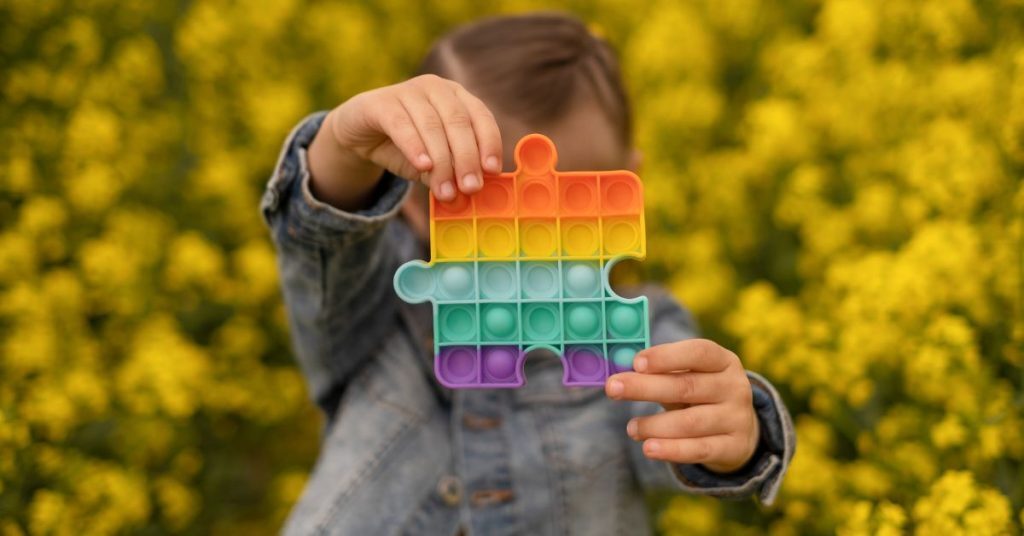In 2021, my son was diagnosed as autistic, and while this didn’t come as a shock to us, the amount of information that came with it was. However, as a military spouse and mom to now two little ones, one of the ways that I was able to learn quick snippets of information throughout the day was by social media. It allowed me to process all these new concepts that I hadn’t even heard of prior, in order to better help support my son. From resources around sensory needs, potty training, to gestalt language processing, these have been some of the most helpful educational tools over the years, all within a quick search on instagram.
For Sensory Integration:
If your kiddo is anything like mine, sensory integration is such a large part of our everyday life. I wanted to know how we could integrate sensory activities into speech and Jessie with @sensory.slp does just that. She posts quick educational reels like, “4 Signs of Dysregulation” that can help you as parent/caregiver support and meet their needs. Katie, with @the.well.balanced.ot, provides examples and strategies of how to improve things like regulation, motor planning, the vestibular system, body awareness, and more! It’s incredibly helpful to go over to her page and find examples quickly when my child is dysregulated.
For Gestalt Language Processing:
Before my son, Grahame, began speech therapy, I had zero idea that there was more than one way to develop language. Everything I had learned thus far in Grahame’s therapies had been based on analytic language processing, or when a child starts with small units of language (single words) and builds on them until they turn into sentences. However, after he began speech therapy in a clinic, his speech therapist, Patrick (@dynamic.speech), identified Grahame as a gestalt language processor (GLP). While not all GLP’s are autistic, the majority of autistic people develop language this way. @meaningfulspeech provides a course that parents can take to better understand gestalt language processing, the various stages, and how to support. Also, there is a registry on their website that shows all the Speech Language Pathologists that have taken the course around the United States. As a military family that has to find new therapists every 3-4 years, this puts my mind at ease knowing that I have a resource that can identify not only therapists, but therapists that are well equipped in the way Grahame learns. @bohospeechie is another page that shows examples of GLP’s and explains the stages easily.
For Potty Training:
Molly Johnson M.Ed, instagram page is dedicated to helping parents master potty training their neurodivergent children. She also shares visuals that parents can purchase to help their children with daily tasks like brushing teeth, breakfast, activities, bed time, and more. Molly also has a monthly membership that includes a potty training online course, the behavior online course, and the visual supports. She doesn’t just leave you alone to learn these things, she also provides virtual support, and also monthly Q&A calls on zoom. While it’s $47 a month, you can cancel anytime. However, the supports and reels that she provides on her instagram feed are extremely beneficial and one can implement them within their own home easily.
For Neurodiversity Affirming IEP Information:
Want your kiddo to be successful in school, but feel like the goals they’re writing for your child aren’t strength based? Chris Wenger, or @speechdude empowers parents to write neurodiversity affirming strategies that focus on the individual’s strengths rather than deficits. Him and Jessie (@sensory.slp) host a podcast as well titled, “Making the Shift” where they cover various topics centered around neurodiversity, sensory integration, IEP’s and more.
If you’re in the beginning stages of diagnosis and the information overload that comes with it, pause, take a breath, and just learn a bit at a time. Start with these resources and learn a little each day as you go. You’ve got this!


